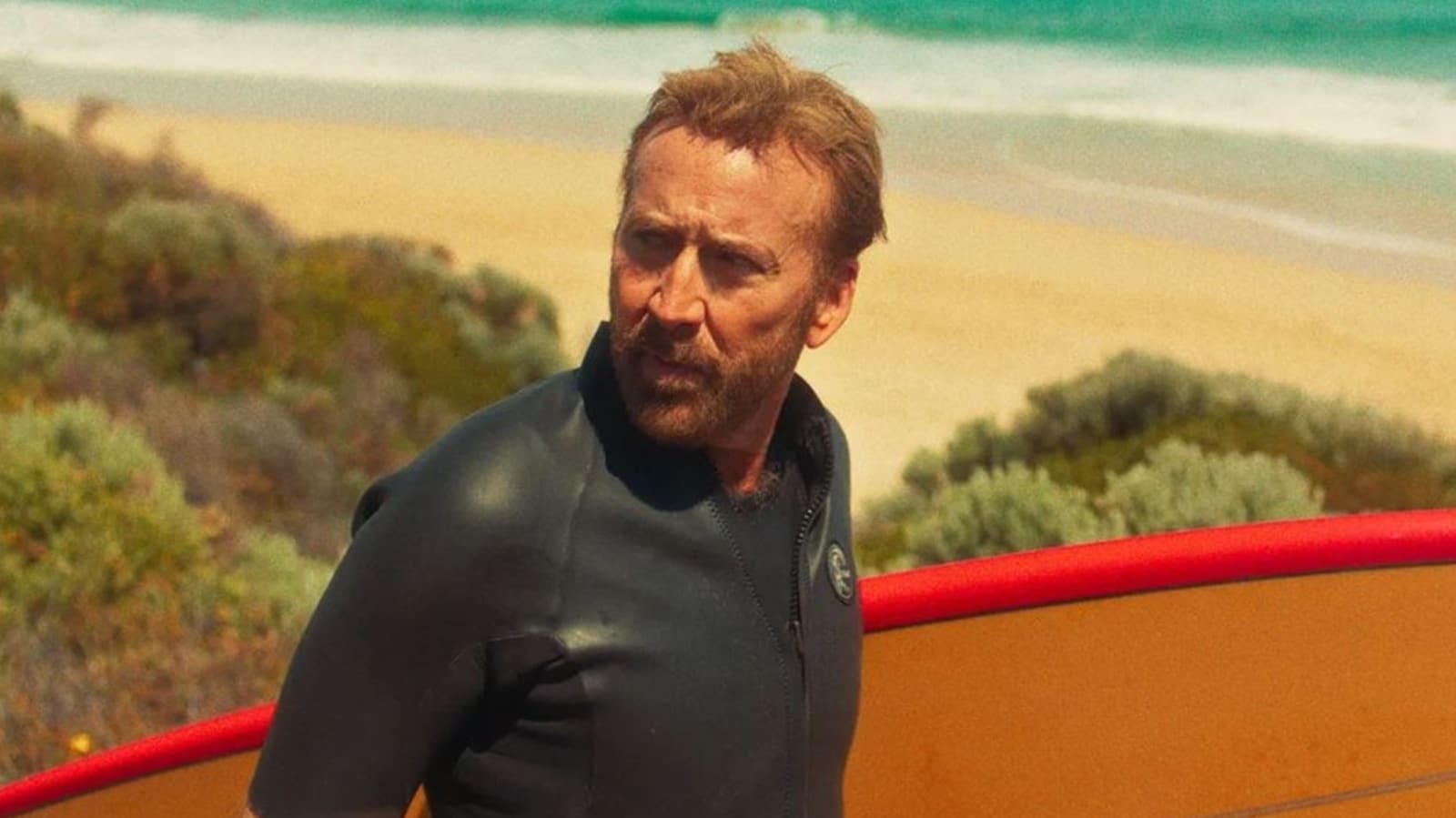Director: Lorcan Finnegan
Starring: Nicolas Cage, Julian McMahon, Nic Cassim, Miranda Tapsell, Alexander Bertrand and Justin Rosniak
Rating: ★★★
Hollywood star Nicolas Cage has built a career out of walking the tightrope between the absurd and the sublime, and The Surfer gives him another chance to teeter gloriously on that edge. Directed by Lorcan Finnegan and written by Thomas Martin, the film pairs Nicolas with Julian McMahon in a menacingly strange battle of wills, played out against the scorching Australian coast.

The film is set in Lunar Bay, a picturesque beach where locals enforce a brutal rule: “Don’t live here, don’t surf here.” Into this environment arrives Nicolas’ unnamed character, a man who dreams of buying a home by the sea and riding the waves every morning. He insists he was born in Australia but spent most of his life in California — a fact that earns him no goodwill, his American drawl immediately marking him as an outsider. The local surfers, led by the shark-grinned Scally (Julian McMahon), take it upon themselves to break him down. What begins as taunts quickly escalates into violent hazing, humiliation, and relentless gaslighting. Reduced to sleeping in his car, scavenging for food, and drinking from puddles, the man still clings stubbornly to his surfboard dream. What emerges is both a fever-dream parable of suffering and a story about a man’s obsessive refusal to be excluded.
The good
What elevates the movie is how it channels Nicolas’ reputation without tipping into parody. Rather than the exaggerated “Cage Rage” that internet culture loves, Lorcan draws out a more controlled, unsettling performance. At times Nicolas feels like a cross between Jimmy Stewart’s unraveling in Vertigo and Michael Douglas’s breakdown in Falling Down — an ordinary man pushed so far he begins to fracture.
Nicolas’ physical commitment is startling: his reddened face looks scorched by heat and humiliation, his body language teeters between exhaustion and defiance. There’s a sense that he’s burning himself up on screen, and it’s impossible to look away.
Lorcan matches this intensity with bold visual choices. Wide-angle close-ups distort perspective, oversaturated colours make the beach shimmer with menace, and François Tétaz’s score adds jazzy unease. Together, these elements summon the disorientation of sunstroke, a cinematic hallucination that mirrors Nicolas’ mental spiral.
Julian’s Scally is a particularly effective antagonist — equal parts great white shark and modern-day cult leader. With his toxic charisma and men’s-rights swagger, he embodies the film’s undercurrent of weaponised masculinity. The script, jagged and pulpy, frames this as a battle not just over a beach but over belonging itself.
The bad
For all its audacity, The Surfer sometimes slips into repetition. The cycle of humiliation — taunts, beatings, gaslighting — plays out so often that it risks dulling the edge. A late shift toward heightened psychological chaos doesn’t always land, blurring the line between purposeful disorientation and narrative confusion.
There’s also a scrappy quality to the final act, where the momentum falters just as the story needs its strongest kick. It never quite derails, but the sense of inevitability is softened, and some viewers may feel the film doesn’t deliver on the tension it so carefully builds.
The verdict
The Surfer is a bruising ride that thrives on its lead’s full-throttle commitment. Nicolas Cage delivers one of his most intriguingly off-kilter performances in years — less cartoonish, more tragicomic, a portrait of a man scorched by rejection and still refusing to bow out.
It’s not a perfect film, but it is a hypnotic one: a gritty, surreal fable about obsession and exclusion, dressed up as a sunburnt survival thriller. All the poor man wants to do is surf — but first, as Scally puts it, he must suffer. And in Cage’s hands, that suffering is oddly glorious to behold. A fever-dream thriller that feels part midlife-crisis drama, part survival nightmare. It’s sweaty, surreal, and savage — the kind of film that could easily spin out of control, but holds together because its star refuses to blink.












